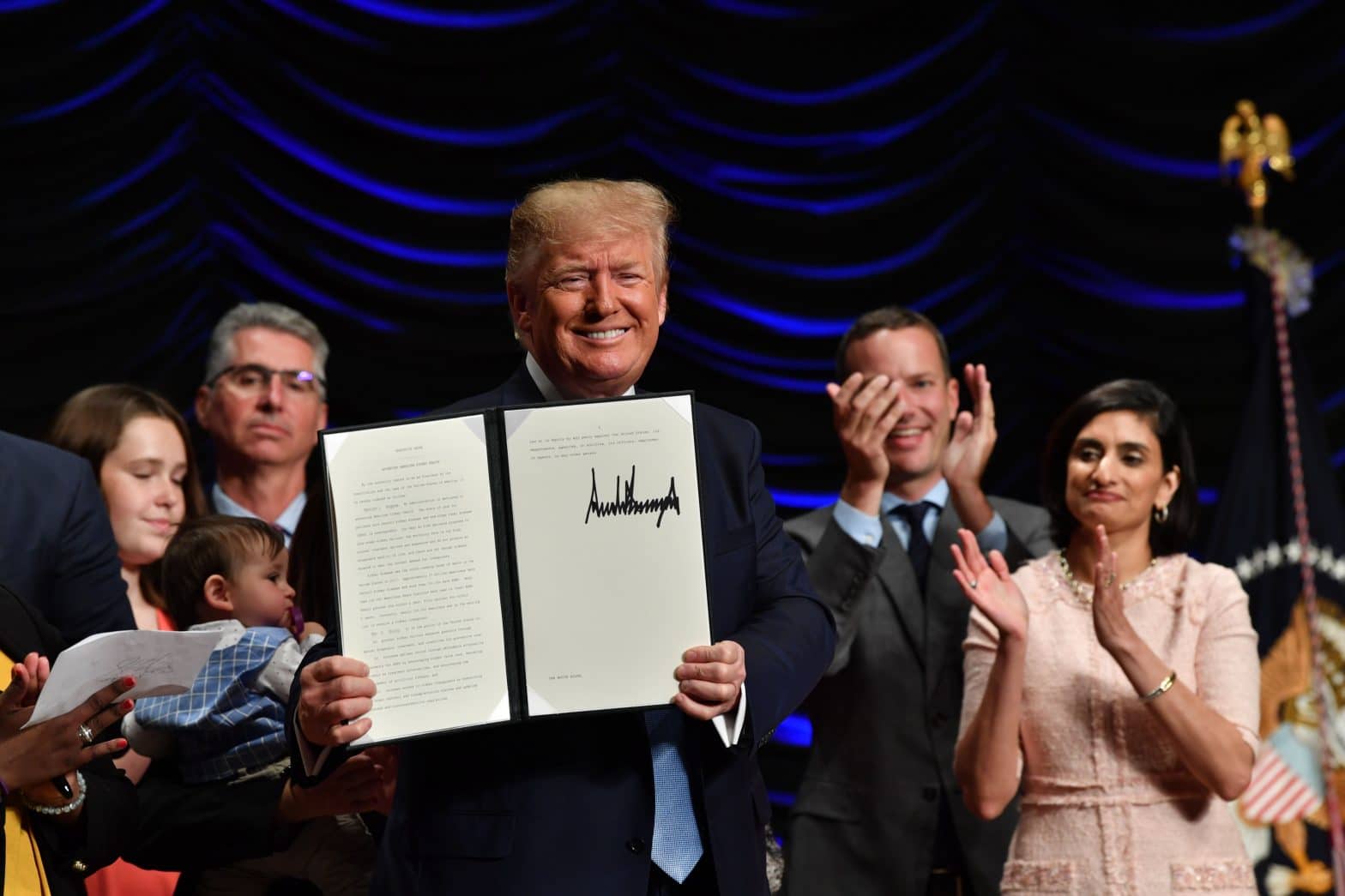A Former No Labels Donor, I’m Worried They’ll Facilitate a Trump Victory
COMMENTARY

As an optimist, realist and pragmatic Republican, I firmly believe that compromise is the bedrock of democracy and that our system only functions when Democrats and Republicans are working together.
But in this divisive political climate in Washington, I’m now an exiled Republican, and with the 2024 election rapidly approaching, bilateral collaboration is not only unrealistic, it’s illogical for both parties. The debt ceiling agreement was an exception to the rule, with only the threat of an economic meltdown bringing both parties to the table.
Bipartisan politics has long been part of my family’s heritage.
My great uncle, Nelson Rockefeller, Republican governor of New York (and later, vice president under Gerald Ford), was often considered overly liberal or moderate, as he supported education, environmental protection, welfare, civil rights and raising taxes. In 1967, Vice President Hubert Humphrey asked him to join him as VP on a unity ticket for the 1968 presidential election, but Nelson felt he must remain a Republican. Suffice to say, he would not be welcome in the party today.
My uncle, Jay Rockefeller, was the only one in the family to hold office as a Democrat. He was elected to the Senate in 1984, despite Ronald Reagan easily carrying the state. Jay entered politics when working with the other side was a given, epitomized by the close relationship between President Reagan and Tip O’Neill. By committing to solving problems, Jay put being in service to our nation’s own interests ahead of either his own or opposing party’s positions.
That principle is part of my own political DNA, and in 2015, I made a sizeable contribution to No Labels. At the time, I had a book and media platform called Practically Republican and I shared No Labels’ commitment to rising above the destructive partisanship that was stifling progress in government. My particular focus was in supporting No Labels’ college program because I felt that engaging new voters was the quickest way to reset the political climate in our country.
Ideally, you build a change movement from both the bottom up and top down.
In 2017, I changed my platform’s name to Practically Political, as including a party affiliation turned half the audience off before even exploring our content. And I continued endorsing No Labels’ vision of bipartisan legislation aimed at solving some of America’s most critical domestic issues and supporting politicians who were willing to work across the aisle.
However, when I heard that No Labels was beginning a campaign to register a third-party presidential candidate in all 50 states in 2024, I was aghast.
Not because I don’t believe in the theory of offering voters an option that brings both parties back to the center, but I feel that relying on independent voters to win an election simply isn’t viable and will give Donald Trump an advantage. Still the GOP frontrunner, he could also stretch judicial proceedings out past the election, using them to motivate both his base and on-the-fence Republicans.
In 1992, Ross Perot’s independent candidacy garnered 19% of the popular vote. While registered in all 50 states, with two moderate candidates in President Bush and Gov. Bill Clinton, he didn’t win a single electoral vote. But thousands of independent votes made the difference in two more recent presidential elections.
In 2000, Green Party candidate Ralph Nader garnered over 95,000 votes in Florida, which were crucial to George Bush’s victory over Al Gore. And in 2016, Green Party candidate Jill Stein received more votes in Michigan, Pennsylvania and Wisconsin than Trump’s margin of victory in each of those swing states.
A recent CBS News-YouGov poll showed that 80% percent of likely Republican primary voters think Trump should return to the Oval Office, even if he’s convicted in the classified documents case.
Over 70% of Americans don’t even want a Biden/Trump rematch.
While I don’t personally support a Biden candidacy, the specter of a second Trump presidency is too great a threat to our country.
The concept of a bipartisan third-party ticket is intellectually appealing, but I cannot support a campaign that makes Trump’s path to the White House any easier.
Dave Spencer, a member of the Rockefeller family, grew up around a culture of political interest and involvement and being part of a family that is one of the pillars of philanthropy in America. A devastating car accident, which cost Dave a leg and the use of an arm, inspired him to pursue a positive, pragmatic approach to seeing the world. He created Practically Political to engage and motivate citizens who are fact- and issue-oriented, invite conversation, respect differences of opinion, believe in compromise and put sound policy before partisanship. Spencer can be reached on Twitter and LinkedIn.
























